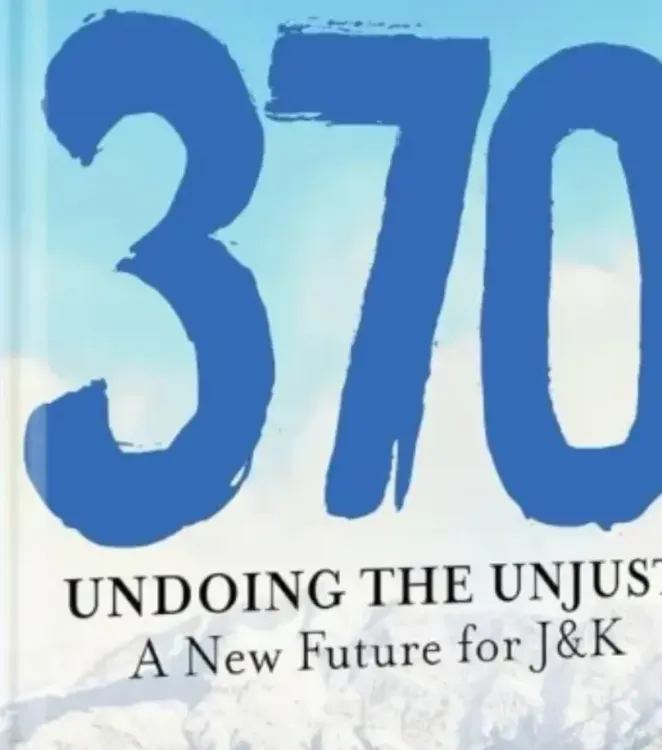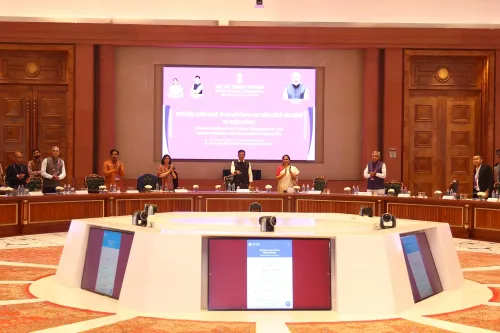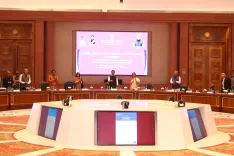What Does the End of Article 370 Mean for Jammu and Kashmir's Future?

Synopsis
Key Takeaways
- Article 370 was abrogated to foster prosperity and stability in Jammu and Kashmir.
- The change promotes investment and infrastructure development.
- The repeal has enabled the application of protective laws for marginalized communities.
- The decision was the result of meticulous planning and legal examination.
- The book emphasizes the importance of unity and justice in fostering a brighter future.
New Delhi, Sep 14 (NationPress) The repeal of Article 370 marked a significant transformation in 2019, aimed at fostering new avenues for prosperity and stability in Jammu and Kashmir, according to a media report released on Sunday, which reviews a book detailing the historical context and vision behind the Central government's choice.
The publication titled "370: Undoing the Unjust: A New Future for J&K" is a vital addition to contemporary history, as stated in the report on The Global Kashmir website.
The repeal of Article 370 has paved the way for increased investment, infrastructure growth, and the enhancement of educational and employment prospects, it indicated.
Additionally, it has facilitated the comprehensive implementation of laws that safeguard women, children, and marginalized communities that previously did not apply to Jammu and Kashmir, it noted.
The book narrates the journey of how a long-standing constitutional provision, Article 370, was decisively addressed and how this action has unlocked new opportunities for Jammu and Kashmir, as per the report titled "A Transformative Account 370: Undoing the Unjust: A New Future for J&K".
Authored by BlueKraft Digital Foundation, the book emphasizes the thorough groundwork that preceded the decision made in August 2019.
This was not a spontaneous decision, but rather the culmination of careful strategy, legal scrutiny, and administrative readiness, the report noted.
It elaborates on how the Union government maintained peace and order, strengthened institutions, and took measures to ensure a smooth transition, it added.
This focus on planning illustrates the seriousness with which the decision was made and reassures readers that the move was not merely a symbolic gesture but a thoroughly considered action, it explained.
The book also showcases the vision of Prime Minister Narendra Modi, who stated that the decision should be executed with the consensus of the people of Jammu and Kashmir instead of as an imposition, it further mentioned.
The report concluded that the book ultimately leaves readers with a sense of optimism.
It illustrates that bold decisions, when accompanied by careful preparation and an inclusive vision, can transform entrenched challenges into opportunities for growth.
It also serves as a reminder that unity, equality, and justice are not just abstract concepts but principles that should be put into practice.
By presenting the abrogation of Article 370 in this perspective, the book aids in fostering greater understanding and national confidence, it said.
"This book is not merely a record of a constitutional alteration but a celebration of a new future. It depicts the abrogation of Article 370 as a pivotal moment that reinforces India's unity and positions Jammu and Kashmir firmly on the path to progress,"
the report added.
Praising the book as insightful and inspiring, the report emphasized its role in elucidating the significance of this historic decision and the brighter prospects it has unveiled for the people of Jammu and Kashmir.
The book serves as a reminder that the changes made in 2019 were intended to open new avenues for prosperity and stability.
"It portrays the abrogation not as the conclusion of something but as the inception of a new chapter where the region's populace can engage more fully in the life of the nation. The focus is on opportunities, development, and empowerment,"
the report concluded.









